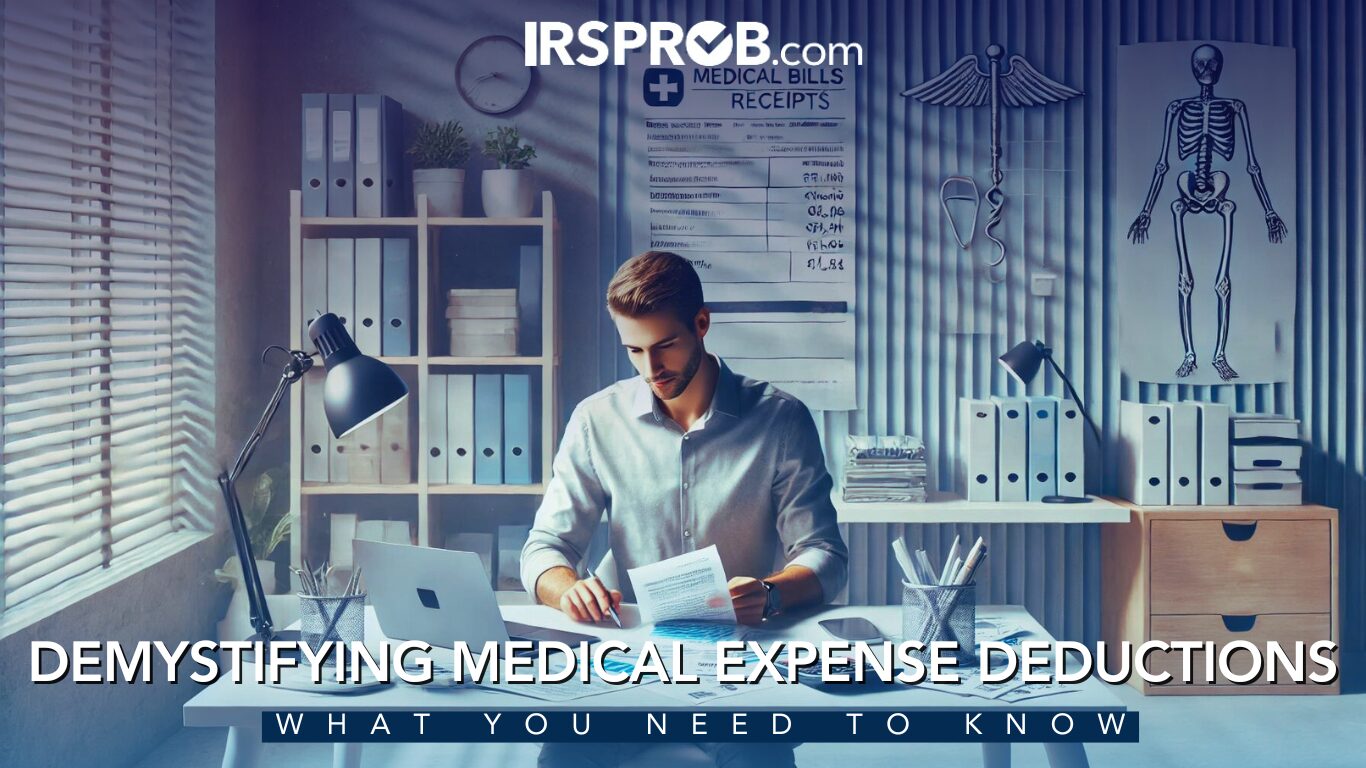
Medical expenses refer to costs incurred for the diagnosis, cure, relief, treatment, or prevention of diseases. This includes expenses for equipment, supplies, and diagnostic devices necessary for these purposes. To qualify for deduction, the medical expenses must primarily aim to alleviate or prevent a physical or mental illness.
Deduction Limits
For the 2024 tax year, qualified medical expenses are deductible as itemized deductions to the extent that they exceed 7.5% of the taxpayer’s adjusted gross income (AGI). This threshold applies both for regular tax and for the Alternative Minimum Tax (AMT) purposes.
When Are Medical Expenses Deductible?
Medical expenses are deductible in the year they are paid, regardless of when the services were provided. Payments made by check are considered paid on the date they are mailed or delivered. For credit card payments, the expense is recognized on the date it is charged to the card, not when the balance is paid.
Who Can Be Included?
Medical expenses paid for the taxpayer, their spouse, or dependents can be included in the deduction. A dependent is generally defined as someone who the taxpayer claims on their tax return. However, certain conditions apply, such as income limits for the dependent.
Special Considerations
- Future Services: Payments for medical care that will be provided significantly after the year-end are generally not deductible, except for prepaid long-term care and long-term care insurance premiums.
- Adopted Children: An adopted child can be considered a dependent for medical expenses if they lived with the taxpayer for the entire year.
- Deceased Individuals: Medical expenses paid for a deceased person can be included in their final tax return, even if paid after their death.
- Long-Term Care: Qualified long-term care expenses are deductible if they are necessary for diagnosis, treatment, or personal care for chronic illnesses.
What Expenses Are Deductible?
- Prescription Medications: Costs for prescribed medications are deductible. Over-the-counter medications and dietary supplements are not deductible, except for insulin.
- Nursing Home Care: Costs for living in a nursing home are deductible if the primary reason for being there is to receive medical care.
- Reimbursed Expenses: Medical expenses that are reimbursed by insurance or other sources are not deductible. Only the portion of expenses that exceeds the reimbursements can be claimed.
Conclusion
For business owners and taxpayers, understanding the nuances of medical expense deductions can lead to significant tax savings. It is advisable to maintain thorough records of all medical expenses and consult with a tax professional to maximize deductions and ensure compliance with IRS regulations.
By being proactive and informed, taxpayers can effectively manage their tax liabilities while benefiting from the deductions available for medical expenses. For personalized advice, consider reaching out to a tax professional who can provide guidance tailored to your specific situation.








